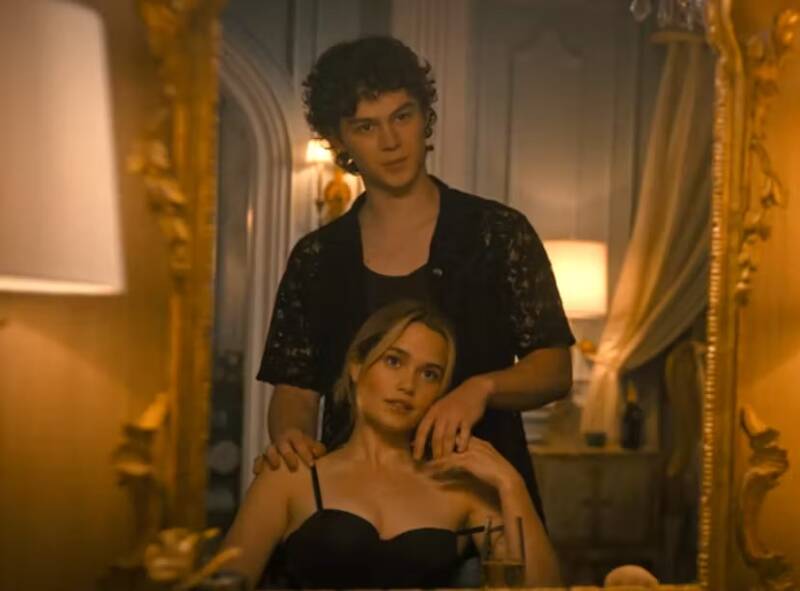
In 1999, the big screen was captivated by the cult classic "Cruel Intentions," a daring adaptation of Pierre Choderlos de Laclos's novel "Les Liaisons Dangereuses." The film, featuring a stellar cast with Sarah Michelle Gellar, Ryan Phillippe, and Reese Witherspoon, delved into the twisted dynamics of step-siblings who turn a new girl into their pawn in a dangerously seductive game of conquest.
Fast forward to 2024, and Prime Video takes its turn with a television adaptation directed by Nick Copus and written by writers Phoebe Fisher and Sara Goodman. This modern retelling touches on themes of power, survival, and jealousy, all set against the vibrant backdrop of college Greek life. Viewers are invited to witness a fierce battle for control as students fight to protect the carefully crafted world they've built, now threatened by their reckless behaviours.
It sounds like a thrilling concept, doesn’t it? But despite having the original's blueprint, this series struggles to fully capture the dark allure and intricate themes that made "Cruel Intentions" a timeless favourite.

Plot
The show introduces step-siblings Caroline (Sarah Catherine Hook), with her cross-necklace and a sadistic drive to achieve her goals. Lucien (Zac Burgess) is brooding and known for his promiscuity. The story is set in college Greek culture, influencing nearly every action the students take as they navigate their fraternities and sororities.
When a hazing ritual goes awry, leaving the congressman’s son, Scott, hospitalized, the entire Greek system comes under scrutiny and faces the threat of dismantling. Determined to maintain her position and legacy after ousting the previous head of her sorority, Caroline challenges Lucien to participate in a high-stakes game. To keep her dream alive, she enlists Lucien to seduce and bring on board the Vice President's daughter, Aimee (Savanah Lee Smith). Lucien eagerly accepts the challenge, motivated by the prospect of sleeping with his stepsister. However, the stakes are high: if he fails, he risks losing his beloved car, which is currently being held hostage by his father.


2024 meets 1999.
There are no strict rules for remakes, and it is perfectly reasonable for a remake to try to engage its contemporary audience by modernising the story. The problem lies in losing the true nature of the original, after submerging it in every trend and controversial talking point that you could think of.
Prime’s TV adaptation almost loses itself in an attempt to make a classic reflect the complexities of current life. It hangs onto the main ideas, but it lacks the sultry and sexual nature, which is what made the original two movies. One would assume it wouldn't be too difficult, given that the writers had the original blueprint. It almost feels like we are watching kids cosplaying the difficulties of adult life. Although the series touches on the main plot points, it lacks the challenge and intensity that characterised the original movies. The films were known for pushing boundaries, whether through the taboo relationships between step-siblings or a student and her music teacher. "Taboo" is indeed the right word to describe the 1999 movie, which was filled with themes of forbidden lust. Viewers hoped that this element would remain consistent in the remake. Instead, the tension in the show can only be described as dry; it fails to be steamy and does not push those boundaries. Despite the talent of the actors, many of them lack chemistry with one another. One would expect Lucien and Caroline to radiate sexual tension, but unfortunately, that is not the case with this duo.
Another theme in the originals is the exploitation of the "weak," where dominant characters manipulate a vulnerable character for their own gain. In this case, the win did not go to Lucien, Caroline, or Aimee. Instead, the award was given to Blaise and Scott, as well as CeeCee and Professor Hank.

Is B before A?
Kudos to the writers of the show for reviving it with the subplots. The convincing performance of Sara Silver as Cee Cee, along with the romantic storyline between John Harlan Kim's character, Blaise, and Khobe Clarke's character, Scott, likely helped maintain viewer interest.
Scott and Blaise were an interesting watch. With one half of the duo being the laidback, thrill-seeking, and slightly clueless toy boy who only cares about enjoying fraternity life. Coupled with Blaise, the “best friend” who he often sleeps with, a cunning and strategic guy, an opportunist who uses his best friend and lover to his advantage. Their story explores the dominance and submission of relationships, with the roles almost shifting at one point. It dives into the extent to which naivety can leave a kind person vulnerable to those around and closest to them. Furthermore, their relationship shows the difficulties behind coming to terms with your sexuality in a pressured environment. Overall, a well-written relationship and performance by the actors.
Again, Sara Silver’s performance was notable; she fulfilled the task of being overly charismatic as well as anxiety-ridden. An overachiever, desperate to fill her insecurities. The writers were able to contrast her strong personality when co-leading the sorority girls vs. the weakened, vulnerable girl who falls for the professor she’s assisting. Honourable mention for the return of Sean Patrick Thomas, recreating the role he played 25 years ago.


Enough or just about?
The lack of digging into the characters' personalities applied to almost ninety percent of them. Very few characters experienced a decent arc from start to finish, whereas we only connected with the rest of them on a surface level. They didn’t actively acknowledge their pros and cons, but maybe that is something the second season will bring forward.

Add comment
Comments